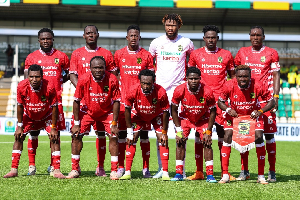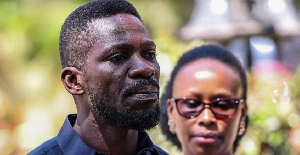with own finances as the way forward,
A professor has stated in last year’s jubilee lectures that Ghana needed 10 more regions and that the lack of these regions has resulted in people feeling left out resulting sometimes in conflicts.
Most people who migrate from the villages hit the road to Accra and not to their regional capitals. In the past and after Nkrumah, almost every major business has been established in Accra-Tema metropolis, most building projects and major financial activities. The regional as well as the districts administration officials have to travel down to Accra to get things done and every major decision concerning the regions and districts wellbeing usually is taken in Accra. If an official misbehaved, the locals have to send a protest letter to Accra to be able to seek redress and Accra is where things happened or got done. There have been instances where district officials and chiefs have bypassed their regional administration to lobby for developmental funding direct from Accra. I haven’t seen the difference between Hohoe and Ho yet except the size and that at Ho there are huge regional administration buildings but every service offered in Ho can be obtained in Hohoe.
A man who wants vital services which cannot be obtained in Hohoe will for instance think first and foremost of going to Accra to obtain them. The same goes to Sunyani and Wenchi.
Take the upper Volta Biakoye area of the Volta region for instance there are over 10 ethnic groups with own dialects/languages from Hohoe to Kete Krachi and any creation of a new region here will only see the emergence of a new group as the centre whiles some new peripheries are added to the national statistics. What we need here is the creation of new districts based on language, proximity and cultural identity; Nkonya, Jasikan, Likpe districts and the Hohoe (Gbi) districts for instance. In the Brong Ahafo region, the creation of the Nsawkaw district was laudable Vis a vis the Wenchi district.
New regions will never solve the problem of ethnicity but rather help in shifting the problem whiles creating new left-outs. The people in our rural areas have been the losers and feel alienated sometimes leading to conflicts not because they don’t have a region of their own but because the rules of the game that should secure them their part of the national cake has not been clear enough nor grounded in law. The people have given up and so they don’t question their politicians anymore. Thus with our country being poor and the rules for dividing the national cake obscure whiles its people are resigned, the central government and its bureaucrats stood to gain by expending resources where their comforts were situated, at the same time as the peripheral towns and locals have been net exporters of resources both natural and manpower to the capitals. Allegiance is bound to shift from the state to the ethnic group creating conflicts with others. But when these distribution imbalances are redressed, conflicts will minimise and resolution easy. Job and workplaces as well as formal institutions exert an enormous amount of social control and bring about cohesion and integration in the community. Our past did not take into account effective district policies which could help reverse those bad trends, and the way forward should not be the creation of yet more regional headquarters with their attendant bureaucratic build-ups but to seek to reverse the rural-area-Accra movement trend by putting into place certain measures I am about to enumerate.
How can we understand the relationship between growth and poverty, those who win and who looses in the development process, what is the significance of social changes occurring in poor and impoverished districts today and how do we bridge the gap and disparity between the rich and poor; rural and urban dwellers, which keeps widening in our country, how do we remove the dependency of the rural dwellers on the cities and their over-reliance on political promises to get things done from the cities? How can we regulate a national labour market which focuses on work for all geographically? And is it possible to develop a national “rule of the game” which secures a more just distribution not only of wealth, but of manpower, competence and know-how between the poor district inhabitants and the rich city dwellers? Can we come to a resolution that brings all parties involved into a win-win situation?
The creation of a new region entails enormous amounts of money on new infrastructure which will only serve the needs of a bureaucracy and suck away the resources. Is it not a fact that a chunk of the regional budgets have always gone to the payment of salaries for the bureaucracy which produce little wellbeing for the people but themselves. Ours is a small country and the size of the regions not too bad.
The development of livelihoods and greater quality of life for our people in the districts is all we should fight about, it in this respect encompasses the level and extent of governance, healthcare, education, disaster preparedness, infrastructure, economics, human rights, peace and security, environment and issues associated with these. These should guide us certainly when we talk of bettering the lives of our peoples, a guide to dividing the cake, and we do not need to create new regions and central authorities to be able to achieve them. The key to defeating poverty and to ensure the attainment of these goals in the districts in my view lies greatly and in part with the ability to task, counsel, train and disseminate information to the districts at all levels as well as to encourage general participation of the civil society at every geographical point in the country. It involves our own recognition individually and locally of the need to develop our districts and be passionate about it, but also the chance and mandate to effect change in our own local environments.
In this direction, we need to strengthen the districts by first ensuring that every possible public service achievable in Accra can be achieved in the district headquarters at least, whiles most services should come under the district administration; water works, electricity, revenue collection, waste and refuse, road and infrastructural; renovation and maintenance, parks and gardens and recreational, the police, agriculture and farm support, counselling, guidance and job creation projects, health and hospitals, audit units and schools etc, etc. In some cases and where privatisation becomes a reality the districts can exert influence by buying shares with the service providers. But we need to also re-establish/relocate some businesses and certain public service providers. For example, there is no reason why the national headquarters of the water works in Ghana cannot be located in Kpong or Akosombo else why the accounts division in charge of payments for ministry workers cannot be located at Aburi or Koforidua. The food and drugs board can have its headquarters in Kumasi near the Science and Technology University or a fisheries school at Kete-Krachi. Think of the registrar general’s office at Akuse where all registration forms can be acquired on the internet and fees paid at the banks.
Some jobs will have to move out of Accra to the districts and if we carefully harness the advantages of modern technology like the introduction of the broad band, it should be possible to send jobs back to the people in our districts or make people chase jobs back to their hometowns after education in the big towns. Decongestion of the cities will then also result bringing about the resolution of two problems at a time. We need to create an apparatus which will be capable of supporting those who create jobs in the districts as well as those who stay behind to find these jobs. In this regard, we may be talking of an office for business development and support which can also serve as career guidance and counselling point for our youth who decide to stay behind. Lots of money has to be pumped into projects in the districts which might call for a reduction in the level of activity and spending in the cities to offset the resultant budget imbalances. Revenue collection should be the responsibility of the districts and a certain percentage of the revenue collected should go to the district by law; let’s say 13% to the district, 17% to the region and 70% to state coffers (room for changes and adjustments). This will mean that the district gets more money to create more jobs, offer better services if they are able to widen the tax net. They will also encourage their young men to stay and work in the districts and pay taxes to help boost the local economy because more taxes means better common good. One can imagine how tax dodgers will be viewed in such a society. Based on projections of future tax incomes the district can take up loans from the rural banks directly for developmental projects that can be viable and can help widen the income base further.
Again, the way taxes are collected and distributed is improper and inimical to local developmental endeavours. Every son and daughter in Ghana comes from a district somewhere. And the development of such districts are a bother to these, that is why there are many associations for development projects in the big cities where the people contribute to the development of the towns and villages they have left behind. Tax collection which can be of help in this connection should be in the following direction; government should set up a “district development tax fund” and every district in the country should have a code which is similar to the T.I.N (tax identification number) currently used and the tin should be able to connect with where the person comes from. Say 2.5% of any tax payable by a native anywhere in the country should go to his districts development tax fund. It should also be possible for a person anywhere in the country when paying tax to decide which districts` development fund he wishes his 2.5% to go to for development. This means that if I arrive in Ghana with a container load of goods or a car, 2.5% of the total amount I paid in taxes will go to my district directly after filling out the necessary forms. I will therefore pay taxes gladly and will mostly refuse paying bribes. Here too, we want to remove government control of the monies we give directly to our villages and towns.
The districts should be given a free hand to manage their affairs and budgetary allocations annually (aside of the aforementioned sources of income) should be made available for them to be able to cater for these services. The allocations should be grounded in law and this is what I expect our elite class living in Accra to fight for.
They should be able to employ their own graduates, lawyers and doctors as well as have control over the police directly, meaning they can question bribe collection by the police in their own local environment and cause the dismissal of an officer. When money is on hand, the district can run its own show and can further determine how much of its money should go to job creation and developmental projects, a renewal of facilities in the district hospital, or whether 50 policemen on its payroll is necessary for the districts security and financial constraints and if not how many can do the job. A cut from the police force can mean an increase in budget allocation for other services like health and water thus encouraging effective use of the resources than today’s practice. An important component of this idea is that the districts can progress with or with no political affiliations, lobby and promises. A strong state will require a stronger decentralisation, empowerment and an effective distribution of resources which will also include relocation of workplaces, jobs and encouragement of local participation.
But the concept of participation must be concerned with ensuring that the intended beneficiaries of developmental projects and programmes are themselves involved in the planning and execution of those projects and programmes. This is considered important as it empowers the recipients of development projects to influence and manage their own development and destiny - thereby removing any culture of dependency on the central governments and regional sponsors. Participation encourages co-operation and positive relationships, frees energy and brings creativity. Politics in the rural areas and the ability by the executive to spend on development projects should be encouraged, and must go hand-in-hand with frank discussions of how current expenditures are set, justification of spending and the challenges ahead. Increased engagement by the civil society in a budget process will result in better policy and planning by encouraging more efficient use of resources and projects that respond to the genuine needs of the community and thereby bring about development in a pragmatic way.
If we want our young men to stay on the land and plough it then it is urgent to make this activity lucrative and stop as a matter of fact the piecemeal solutions.
Why is it that a farmer who has tended the cocoa farm which financed the nation all his life has no insurance when the farm got burnt in bushfires or why is it that he has no pension when he becomes old and cannot work the land anymore? The state has always been uneasy when swollen shoot and black pod diseases struck cocoa farms and most often huge international loans are contracted to do away with the problem, however, the state has never thought of pensioning or insuring the most important resource in our cocoa industry; the farmers. Why? There are two things we need to do here; first, to make farming a lucrative business by ensuring that it is secured to go into it and that it has a future. Secondly, to ensure that markets and buyers are readily available to ensure stability in incomes and less worry for the farmers. How can our governments explain an abundant harvest where our farmers become impoverished when prices fall and sometimes with no buyers, whiles there is hunger in most of our neighbouring countries? In the abundance of water, the fool is thirsty indeed! A tomato farmer killed himself in the northern region because of abundant harvests, bank loans and no buyers! We should be ashamed of ourselves as a nation. The challenges will also involve institutional ability to renew and adapt itself, and to face up to challenges which keep changing form and shape from time to time in conformity with demographical changes as the years go by. That is where the state and the regional headquarters duty should be; focusing on common guidelines, counselling and continuous training, follow-ups, laws and control mechanisms as well as working to balance inequalities among the districts of the regions. The leaders DCEs must be elected and they must work with the assemblies to get things done. One area in which the centres with their expertise could help the districts is counselling them on how to provide services and quality service delivery.
The weak side of my argument stems from the fact that certain districts are two small with less resources to go it alone. But there is a way out of it! In areas where the districts cannot go it alone, a communal or municipal enclave can be established where three or four districts can team up to utilise common resources for the provision of essential services to all dwellers in these districts. An agricultural mechanisation centre owned by these districts can serve the needs of farmers in all three or four districts. A water reservoir constructed in the bushes somewhere between Wenchi and Techiman could serve the towns as well as Kintampo and surroundings for instance.
There are many ways of ensuring that the constitution of the districts are open for fair-play, rule of law, checks and balances and the separation of powers even in the districts. But the first important step is to ensure that Ghana looks to the future with a resolute district politics whiles stepping on the breaks for urban spending. I will call on our noble schools of learning to come out with ideas which will help bolster the need towards this direction of district policy formulation. That is the only way we can reduce the rural-urban (Hometown-Accra) migration trend. These issues can be best refined and tackled by a social democratic school of thought where strengthening the grass root and institutions become the hallmark. I ask all parties who claim affiliation to social democratic principles and welfare; the NDC and PNC to look seriously into the matter and stand by the CPP in promoting this noble cause. Join the welfare debate on www.betterghana.net and register yourself for a CPP newsletter weekly. FORWARD EVER!
Festus K.Lartey-Adjei (Labour Consultant in the New Labour and Welfare outfit in Norway, Member of the ruling labour party and an executive member of the CPP Scandinavia in Oslo)
General News of Sunday, 6 April 2008
Source: festus k.lartey-adjei












